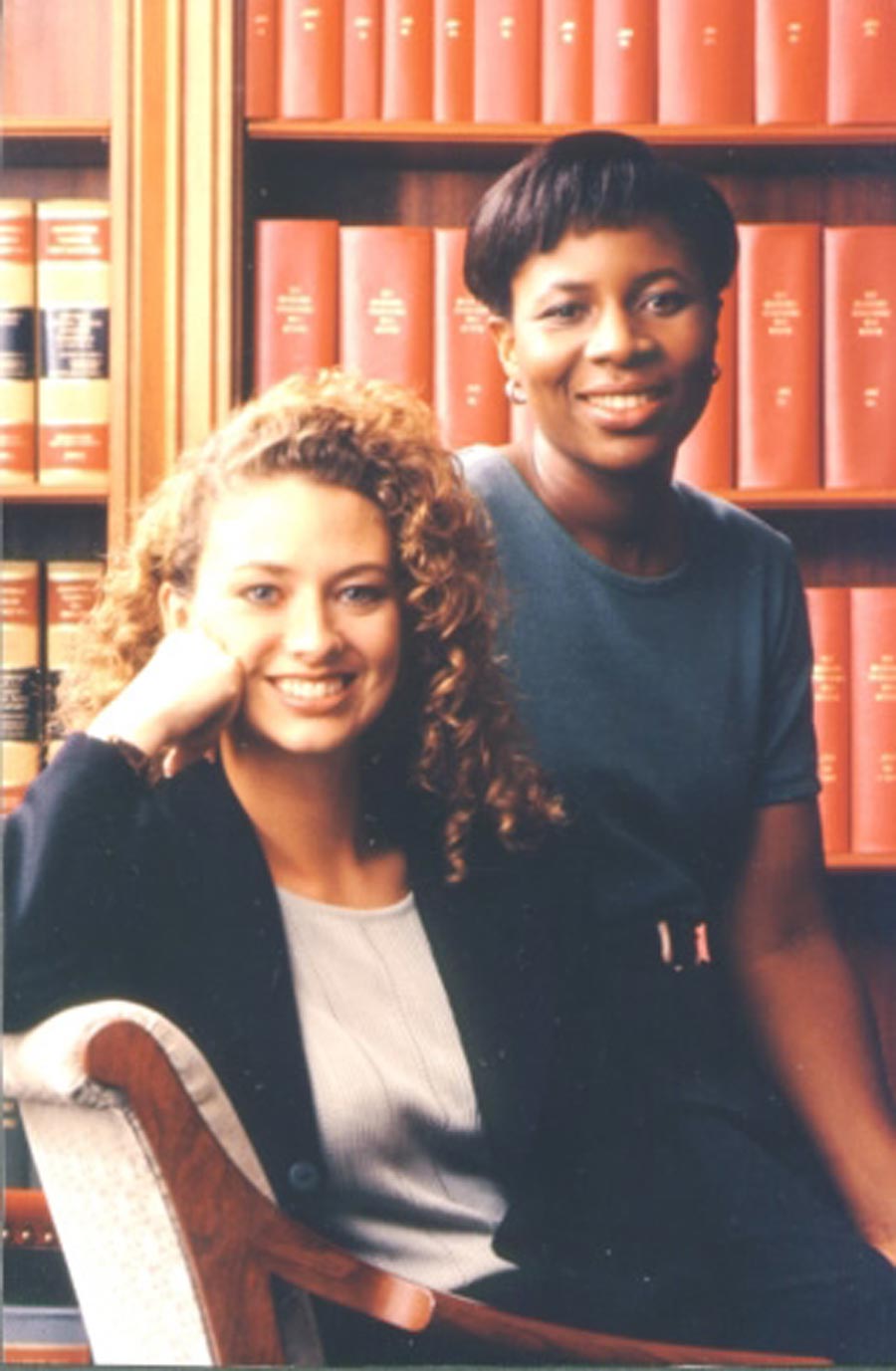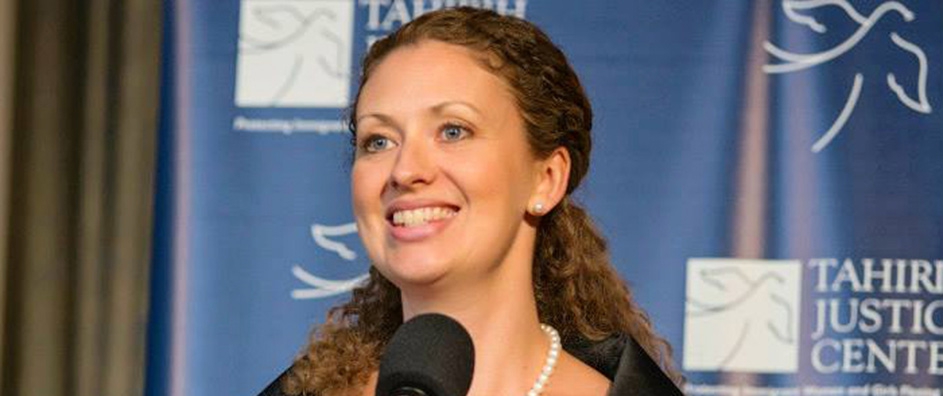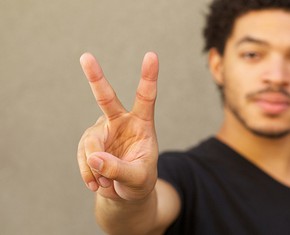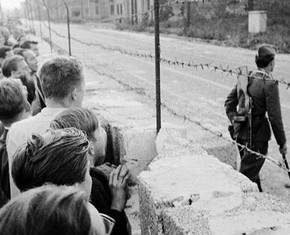The views expressed in our content reflect individual perspectives and do not represent the authoritative views of the Baha'i Faith.
…among the teachings of His Holiness Baha’u’llah is the equality of women and men. The world of humanity has two wings—one is woman and the other man. Not until both wings are equally developed can the bird fly. – Abdu’l-Baha, Foundations of World Unity, pp. 29-30.
Growing up as a Baha’i, I learned about and always believed in the equality of women and men—one of the fundamental principles of the Baha’i teachings. But as I grew up, I looked around at the state of society and realized that we had a long way to go before we treated the genders equally.
That’s why I founded the Tahirih Justice Center in 1997.
It all started with my involvement as a student attorney in a high-profile case that revolutionized asylum law in the United States. Fauziya Kassindja, at the age of 17, fled her home country of Togo in fear of a forced marriage and female genital mutilation. She sought asylum in the United States, but instead of finding protection, she spent more than 17 months in detention. Can you imagine?

Fauziya Kassindja and Layli Miller-Muro
I was still a young law student at American University, but I wanted to help Fauziya. We took her case to the highest immigration court in the nation, and Fauziya was granted asylum in 1996 by the U.S. Board of Immigration Appeals. The decision set a new national precedent, establishing gender-based persecution as grounds for asylum for the very first time. Inspired, Fauziya and I wrote a book about her case called “Do They Hear You When You Cry?”
The story of Fauziya’s life received enormous publicity; and all the attention generated numerous requests for help from women and girls in similar circumstances—from all over the world. I looked, but I found few organizations willing or able to help. So we decided to use all of the proceeds from the book to create the Tahirih Justice Center, a non-profit organization with one global mission: to protect women and girls in need.
Although the Baha’i community has just begun to understand how to apply Baha’u’llah’s teachings to heal the ills of the world, exciting learning has taken place regarding the development of patterns of community life and the application of Baha’i principles to provide relief to the suffering of humanity.
Still in a stage of infancy, experiments in Baha’i-inspired social and economic development, or “social action,” have been reinforced by recent encouragement from the Universal House of Justice—the democratically-elected international Baha’i governing body—to engage in social action. It is an exciting time to be a part of the Baha’i community, as we are at the beginning of our learning regarding the implementation of social action as a tool for the well-being of society. This short series of articles explores the history of social action in the Baha’i community, focuses on the Tahirih Justice Center’s experience as one example of such thinking, and examines the culture of service to humanity the worldwide Baha’i community strives to achieve.
The Baha’i teachings set a very high standard, both individually and collectively, for that culture of service to others:
Without action nothing in the material world can be accomplished, neither can words unaided advance a man in the spiritual Kingdom. It is not through lip-service only that the elect of God have attained to holiness, but by patient lives of active service they have brought light into the world. Therefore strive that your actions day by day may be beautiful prayers. Turn towards God, and seek always to do that which is right and noble. Enrich the poor, raise the fallen, comfort the sorrowful, bring healing to the sick, reassure the fearful, rescue the oppressed, bring hope to the hopeless, shelter the destitute! This is the work of a true Baha’i, and this is what is expected of him. If we strive to do all this, then are we true Baha’is, but if we neglect it, we are not followers of the Light, and we have no right to the name. – Abdu’l-Baha, Paris Talks, p. 80.
Led by Abdu’l-Baha’s example, the global Baha’i Community has a long history of engagement in social action. From the earliest days of the Faith, the Baha’i community was distinguished by it. Abdu’l-Baha, the perfect exemplar for Baha’is, ministered to the poor on a daily basis, and was known throughout the world for his many acts of service and extreme generosity. Abdu’l-Baha would give away the clothes he wore to a homeless person he passed by; would give money to those who sought his help; would bathe and feed those who were too weak to do so for themselves; and treated all—from various classes, races, and levels of education—with the same degree of love and respect. His name, which means the “Servant of God,” truly reflected his actions:
So extreme was His commitment to charity that He prioritized the company of the poor over that of the rich. In one example, during Abdu’l-Baha’s trip to New York in 1912, He was invited to the homes of many socially prominent New Yorkers but refused their offers, saying, “I have work with the poor and not with the rich. I love all with heart and soul yet I am not here to visit the homes of the rich.” When Andrew Carnegie pressed him to come, He relented, but only with much cajoling. – Allen Ward, 239 Days: Abdu’l-Baha’s Journey in America, p. 186.
Next: All Great Movements Advance through Altruism
















Comments
Sign in or create an account
Continue with Googleor